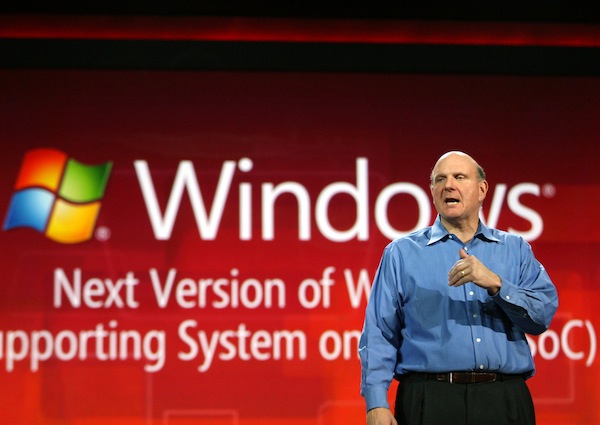
Should Microsoft release a branded tablet?
It's Microsoft mystery Monday, with some big announcement coming at 6:30 pm EDT. The current rumors all focus on tablets, with the most recent being a partnership with Barnes & Noble. Can you say Windows Nook? (However, after I posted, Barnes & Noble issued a non-participation statement).
There's a broader question: Should Microsoft release a branded tablet? I pose that to you on this fine day. I'm certainly perplexed. The big advantage to such an announcement is timing. Google is expected to debut its own branded Galaxy Nexus tablet at the I/O developer conference next week. Microsoft could steal Google's thunder by doing something first. But would it be, with Windows 8 still in development? Now it would be big if Microsoft said Windows RT is ready now and this tablet , whether made by Barnes & Noble or somebody else, ships imminently. Otherwise, why bother announce June 18, when OEM partners showed off Windows RT models earlier this month at Computex?
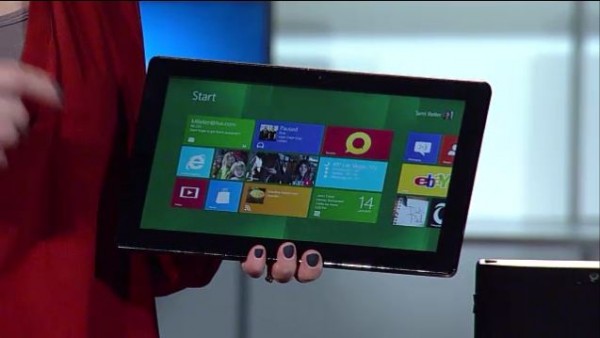
IDC will finally count Windows tablets with iPads and Androids
Hopefully, Gartner and other analyst firms will show as much sense.
Windows tablets have gotten the shaft from IDC and other analyst firms for far too long. They count the devices as PCs, not tablets. Last year, after Gartner's tablet forecast failed to include Windows, several prominent bloggers fanned the flames of misinformation, wrongly concluding Microsoft's OS would have no share by 2015. Today, IDC issued a new forecast that still ignores Windows tablets, but changes are promised.

Four stories you should read this Sunday, June 10
Three years ago, my Sunday mornings started with the New York Times. Now it's Feedly, which appealingly presents my RSS feeds synced from Google Reader. I mainly use the app on a tablet, and I highly recommend it. This morning, as Apple's developer conference approaches tomorrow, there are loads of punditry -- and much of it pointless.
Four posts caught my attention enough to write about them and all published over the weekend. Interestingly, the majority are guest posts rather than regular staff pieces.
Acer's cheap 7-inch Android tablet hints at wave of devices for Q3
At Computex 2012, Acer quietly showed off an update to its 7 inch Android-powered Iconia A100 Tab which is expected to come out in the third quarter of the year.
The new tablet is known as the A110, features a quad-core Nvidia Tegra 3 processor with 1 GB of RAM, and will run Android 4.0, Ice Cream Sandwich.
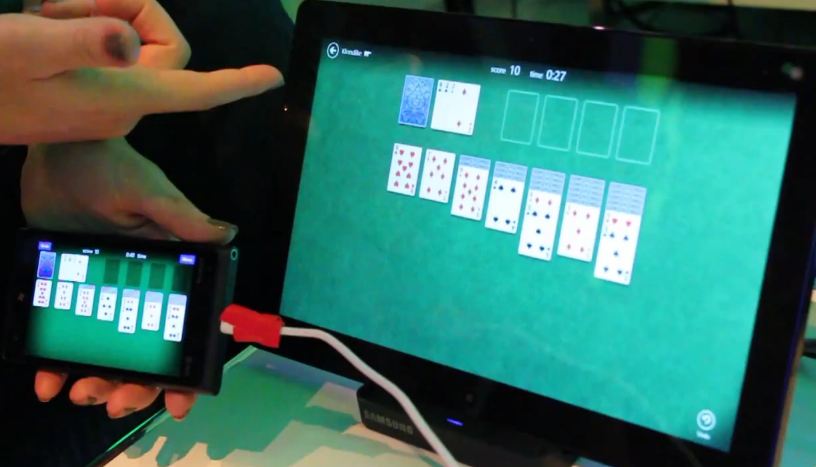
Hands-on with Microsoft's SmartGlass
Microsoft's Xbox SmartGlass announcement yesterday provided a shot of adrenaline in the aging leg of the Xbox 360. While Kinect was a way to extend the life of the console for a couple of years during the motion control craze, SmartGlass is a further push to open the console to unique gameplay elements in the future, and to advance the "settopboxification" of the Xbox 360 console.
This is a good thing.

Instead of buying a touch-enabled PC for Windows 8, just use your iPad or Android tablet
Splashtop Inc. makes a handful of applications that allow users to link their mobile tablets with their PC in different ways. On Wednesday, the company released a new tool for developers that lets them use an Android tablet or an iPad as the touch interface for Windows 8.
Called Win8 Metro Testbed -- Powered by Splashtop, the application recognizes more than a dozen Windows 8 touch gestures, including: Swipe to view the Charms menu, Swipe to switch apps, Swipe left/right in Internet Explorer to move between pages, Swipe down to bring up additional menus, Swipe down on an item to select it, Pull down to close an app, Slow swipe to "snap" two apps side-by-side, Swipe to show running apps, Pinch for "Semantic Zoom," and more.

Toshiba teases two Windows RT devices, but has nothing to show
Toshiba USA on Tuesday announced a small selection of next-generation Windows machines, including a new ultrabook in the Satellite family, a convertible Windows 8 notebook designed in conjunction with Intel, and pair of mobile devices running Windows RT.
Unlike Asus, who yesterday presented mostly finished preproduction prototypes of its first Windows RT device, Toshiba did not show off much in the way of RT hardware. Instead, the company presented a loose roadmap for device availability.
The two devices Toshiba announced on Tuesday are being designed in conjunction with Texas Instruments, and will be powered by multi-core TI OMAP systems on a chip. One will be a touchscreen clamshell PC, and one will be a mobile tablet with keyboard dock similar to the Asus Tablet 600.

Would US consumers choose iPad mini over Kindle Fire?
Rarely does a ChangeWave consumer buying survey offer so many intriguing topic possibilities. Interest in Kindle Fire has collapsed, only 7 percent of respondents plan to purchase a new tablet within 90 days, those buying overwhelmingly choose iPad, but interest in a smaller Apple tablet is fairly modest.
Buying intention surveys are often misleading. What people would like to do often isn't what they will when time comes to pay up. With that caveat, the survey -- 2,893 consumers last month -- bodes ill for Kindle Fire or prospective iPad mini. In November, 22 percent of respondents said they would buy Kindle Fire, but only 8 percent in May. Meanwhile a mere 3 percent of respondents would very likely buy iPad mini.
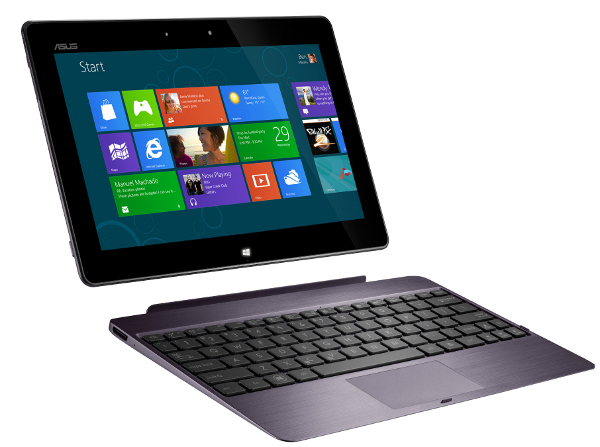
Shut up and take my money: The first Windows RT device for consumers
Late last year, I got pretty excited about the Asus Eee Pad Transformer Prime Android tablet. The tablet/notebook form factor spoke to me, the specs were impressive, and the overall package looked just right for an individual looking to do more working than playing.
Asus has revisited the appealling form factor of the Transformer Prime and applied it to Windows RT, the version of Windows 8 specifically for devices running on ARM-based processors.
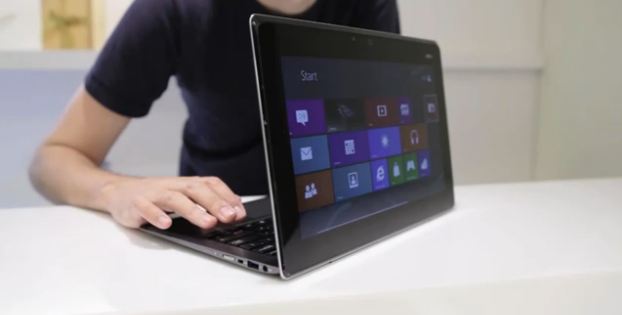
Windows 8 just got cooler: Asus unveils 'Taichi' dual-screen ultrabook
At Computex 2012 in Taipei, Taiwanese PC maker Asus unveiled a new Windows 8 ultrabook design that features a full-sized HD IPS touchscreen display on the "lid" portion of the device. This second screen allows the device to be used as a tablet when the lid is closed, or as a presentation/screen-sharing tool when it is open.
The Asus Taichi is currently a working design, and Asus says the specs are not yet finalized. However, the company says the Taichi will be available in both 11.6” and 13.3” profiles, will have third generation Intel Core processors with 4 GB of DDR3 memory, and an undisclosed amount of SSD-based storage.

Techies, June will be the most amazing month EVER
Save your greenbacks now. During these thirty days you'll hear about lots of innovative and imitative products coming for the holidays. There's no coal in Santa's stocking this year, just too much tech to fit your gift list.
Not since the late 1990s, when seemingly every day some vendor announced a new PC that was ever-so-better than the one you bought the week before, is there so much new tech coming so close together. The cloud connected-device era ushers in a storm of tech. Save up now so you don't break the bank account or exceed credit card limits later.

Say, iPad idolaters, don't write the laptop's epitaph just yet
May you live in interesting times. It’s an ancient curse. Or is it a blessing? There are volumes devoted to that age-old issue. In my world, though, there’s nothing gray about this topic. I get paid to answer questions, so interesting times are a blessing. Straight up. When clients don’t have any questions, now that’s a curse.
These are blessed times we live in, my friends. At least it is in my world. It’s hard to believe that it’s only been two years since Apple sold the first iPad. The year before, the tech world marveled at the vitality of the PC. Incredibly, shipments grew in 2009, defying gravity at a time when the rest of the economy seemed to be in a free-fall. My, how things have changed.
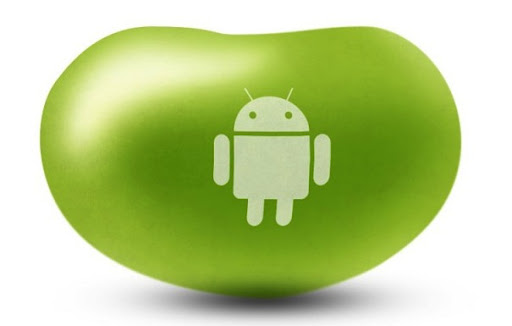
What would you pay for a 7-inch, quad-core Asus-made, Googe-branded Android 4.1 Nexus tablet?
Rumor stories are uncommon here at BetaNews, and rare when we don't get the information ourselves. But Android Police has got one so tasty and so in line with others, I can't resist. In less than one month, Google could debut the highly-anticipated Nexus tablet, produced in conjunction with Asus and packing quad-core Tegra 3 processor and Android 4.1. The only question, if rumors prove to be true, is price. What would you pay for a 7-inch Asus-made, Googe-branded Nexus tablet?
David Ruddock reports evidence from Rightware's Power Board benchmark and Android Police server logs showing instances of Androd 4.1 and Nexus devices. But the benchmark tool is more revealing: 1.3GHz nVidia Tegra 3 quad-core processor, 1280 x 768 resolution display, Google brand and product name Google Asus Nexus 7. That's hardly a smoking gun. Asus and Google could be testing a prototype device, or even several. But given that Google I/O starts June 27, developers received tablets there last year and the search giant promised a Nexus tablet in about six months half a year ago, the discovery is too credible to ignore.
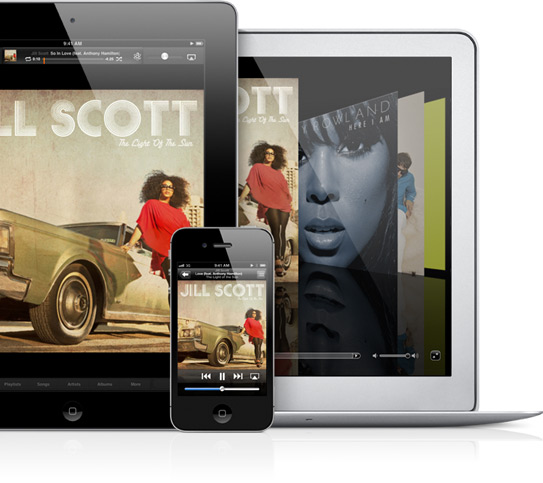
Is Intel Inside iPad, iPhone a pipedream?
Intel CEO Paul Otellini told investors this month that Apple could build its iPad and iPhone lineup on the Atom family of microprocessors any time it wants to. And he’s going to do everything in his power to make that prospect so enticing that Apple can’t refuse. Pipedream? Not hardly.
Now, I understand why some of you would consider this to be pure fantasy. Intel has been trying to pry its way into the smartphone and tablet markets for five years now, and until this year the company has had little to show for it.

Sorry, you can't mail your iPhone or iPad overseas 'til next year
The United States Postal Service has put a ban the international shipment of lithium-based batteries (Lithium Metal, Lithium Alloy, and Lithium ion.) This ban includes electronic equipment with lithium batteries permanently installed such as mp3 players, tablets and smartphones, and will stay in place until January 1, 2013.
Because of the issues that Lithium batteries have with short circuiting, overheating, and exploding, special regulations have been placed on their transport for the last five years.
